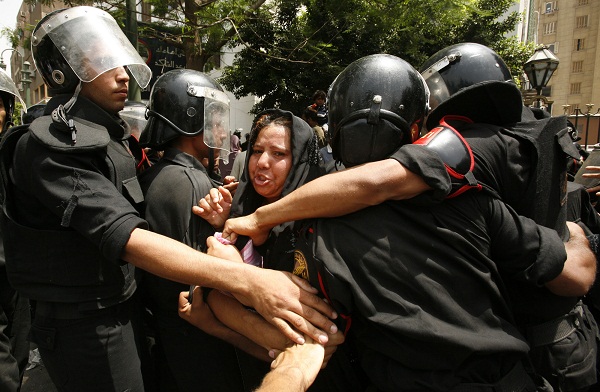Associated Press
CAIRO: Iraq s foreign minister on Monday said his government would oppose efforts to involve the UN Security Council in plans to stem the violence in Iraq, insisting his country would solve its own crisis.
Foreign Minister Hoshyar Zebari was responding to comments made Sunday by Arab League Secretary-General Amr Moussa who suggested that Arab governments may take recommendations they have on quelling the bloodshed in Iraq to the Security Council.
There have been some ideas about internationalizing the Iraqi issue. This is totally rejected by us. The Iraqi government is elected by its people and it is able to deal with the situation, Zebari told The Associated Press in an interview at a downtown Cairo hotel.
Moussa s comments Sunday came after Arab foreign ministers, who also met in Cairo, said the Iraqi government should redraft its constitution and rescind laws that give preferential treatment to Shiites and Kurds. Their statement was the strongest sign yet from the mostly Sunni Muslim Arab governments in the Middle East that they blame the Iraqi government for the country s sectarian strife.
The ministers said they wanted Iraqi Prime Minister Nouri Al-Maliki s government to consider supporting their recommendations before they would give their full support to a regional conference on stabilizing Iraq that is scheduled to start Saturday in Baghdad. The conference is expected to bring together all of Iraq s neighbors, including Iran and Syria, as well as the United States and Britain.
Among the recommendations they made were expanding the political process to achieve broader participation of Shiites, Sunnis and Kurds, confronting sectarian tensions and working to eliminate them, speeding up constitutional reform and ensuring the equal distribution of wealth.
Though Iraq s Cabinet last week endorsed a new oil law designed to distribute wealth equally among the population, it was not expected that Al-Maliki would agree to all or even some of the Arab ministers recommendations.
Zebari on Monday said Iraq has already been making reforms.
These are not demands, neither conditions. We have already embarked on reforming what needs to be reformed, he said.
Sunni Arab countries like Egypt, Saudi Arabia and Jordan have been deeply disturbed by what they view as a Shiite bias on the part of Iraq s Shiite-led government as sectarian violence has flared in recent months. Arab governments have pledged to send representatives to the Baghdad meeting next weekend despite their reservations about the country s direction.
Zebari said he hoped the Baghdad conference will be a platform to help ease other regional tensions and urged Iraq s neighbors to show their commitment to establishing security.
We want the conference to send a very strong message that the regional countries are ready to help the Iraqi government in the efforts to establish peace and security, he said. They should show in a very strong way.


